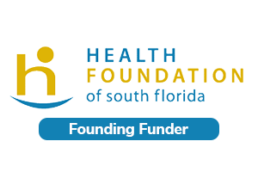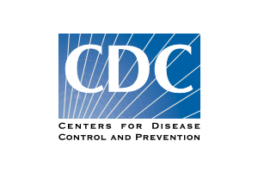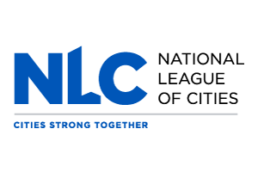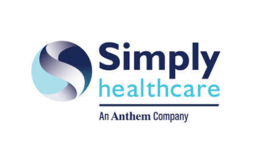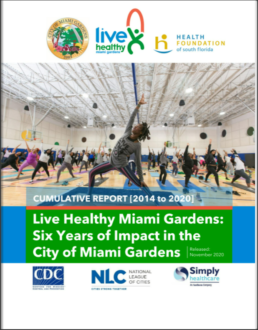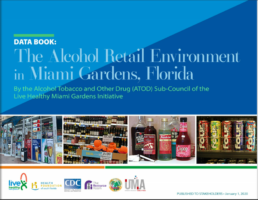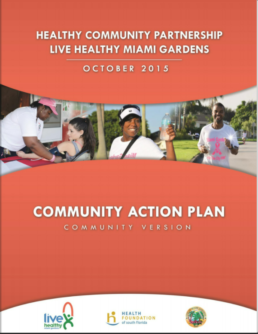- Alcohol, Tobacco and Other Drugs (ATOD)
- Healthy Eating and Improved Nutrition
- Mental Health
- Physical Activity
- Primary Healthcare
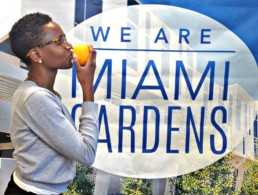
Our Mission
The mission of the Live Healthy Miami Gardens is to foster and maintain a community culture of health and well-being for all residents of the City through access, information, activities and services.
Our Vision
Live Healthy Miami Gardens aspires to create a community where all residents’ physical, emotional and spiritual needs are fulfilled.
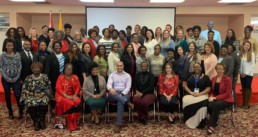
Our Values
Accountability
We take and demonstrate responsibility for our actions and decisions.
Community Engagement
We engage the community in all that we do, recognizing that community involvement is empowering and increases the likelihood of cooperation, ownership and success.
Data Driven
We are committed to utilizing data collection and analysis to guide our decision-making and improve our outcomes.
Education
We educate people, organizations and institutions about how they can support, encourage, and engage in healthy behaviors in the community.
Health Equity
We are committed to eliminating health disparities and systemic disadvantages to ensure everyone in our community has fair opportunity to attain their full health potential.
Sustainability
We will focus on efforts that have a lasting impact.
Our Staff

Thamara Labrousse
Program Director

Quintina Haynes
Administrative Assistant
Host Agency
Host Council
Committees
- Advisory: Includes community stakeholders who had a keen interest in the initiative’s success and valuable skills to contribute, but who did not have sufficient time to devote to full Host Council membership. Advisory Committee members served as champions, contributing to efforts to raise awareness and resources and to engage the community.
- Data & Evaluation: Conduct data analysis; create data agendas; fill data gaps; and help lead evaluation activities.
- Governance: To create and maintain the Host Council’s governance structure, as well as policies and procedures for the initiative on the whole.
- Nomination: Develop recruitment and retention strategies and related processes to sustain diversity and vibrancy in leadership.
Subcouncils
- Alcohol, Tobacco and Other Drugs (ATOD)
- Primary Healthcare and Mental Health
- Physical Activity and Nutrition (PAN)
